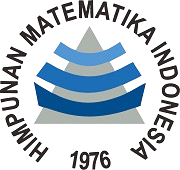Development of Mathematics E-Modules with Cultural Context to Support Mathematical Literacy
DOI:
https://doi.org/10.30736/voj.v7i1.1139Keywords:
Mathematics E-module, Cultural Context-Based E-modules, Cultural Context, Mathematical LiteracyAbstract
This research aims to develop a culture-based mathematics E-Module to support students' mathematical literacy in a valid, practical, and effective way. The ADDIE development model was used in this research. Data was collected with validation sheets, response questionnaires, and evaluation questions and analyzed descriptively qualitative and quantitative. The validity of the E-Module, with a validation score of 81.5%, fits the valid criteria. Practicality with a response questionnaire score of 90.49% according to practical criteria. Effectiveness was assessed from student evaluation results with an average percentage of 63.166% according to somewhat effective criteria. The results showed that the E-Module with cultural context is feasible and practical and has a positive impact on improving students' mathematical literacy skills.
Downloads
References
Akbar, S. (2013). Instrumen perangkat pembelajaran. Bandung:Remaja Rosdakarya Offset
Burkhardt, H., Pead, D., & Stacey, K. (2024). Learning and teaching for mathematical literacy: Making mathematics useful for everyone. Taylor & Francis.
Cahyono, A. D., & Budiarto, M. T. (2020). Pengembangan Bahan Ajar Berbasis Etnomatematika Kesenian Rebana untuk Meningkatkan Literasi Matematis Siswa SMP. Jurnal Ilmiah Pendidikan Matematika Volume, 9(2).
d’Entremont, Y. (2015). Linking Mathematics, Culture and Community. Procedia - Social and Behavioral Sciences, 174, 2818–2824. https://doi.org/https://doi.org/10.1016/j.sbspro.2015.01.973
Efendi, S. A., Haryono, Y., & Cesaria, A. (2024). Development of E-Module Based on Mathematical Literacy Skill in Statistical Materials. Vygotsky: Jurnal Pendidikan Matematika Dan Matematika, 6(1), 39–50.
Fahrurrozi, M., & Rahmawati, S. N. L. (2021). Pengembangan Model Instrumen Evaluasi Menggunakan Aplikasi Kahoot Pada Pembelajaran Ekonomi. Jurnal PROFIT Kajian Pendidikan Ekonomi Dan Ilmu Ekonomi, 8(1), 1–10.
Fathani, A. H., & Pangestu, I. N. (2024). Development of Problem-Based Senior High School Mathematics Learning Tools with a Culturally Responsive Teaching Approach. Vygotsky: Jurnal Pendidikan Matematika Dan Matematika, 6(2), 111–118.
Feriyanto, F. (2022). Strategi penguatan literasi numerasi matematika bagi peserta didik pada kurikulum merdeka belajar. Gammath: Jurnal Ilmiah Program Studi Pendidikan Matematika, 7(2), 86–94.
Kusno, K., Makhful, M., Setyaningsih, E., Andriani, R., & Putri, E. A. (2023). Etnomatematika dalam Kesenian Banyumasan.
OECD. (2019). PISA 2018 Results (Volume I). OECD. https://doi.org/10.1787/5f07c754-en
OECD. (2023). PISA 2022 Results (Volume I). OECD. https://doi.org/10.1787/53f23881-en
Peraturan Menteri Pendidikan, Kebudayaan, Riset, Dan Teknologi Nomor 17 Tahun 2021 Tentang Asesmen Nasional, Pub. L. No. 17, 1 (2021). https://peraturan.bpk.go.id/Details/175175/permendikbud-no-17-tahun-2021
Poernomo, E., Kurniawati, L., & Atiqoh, K. S. N. (2021). Studi literasi matematis. Algoritma: Journal of Mathematics Education, 3(1), 83–100.
Purnomo, P., & Palupi, M. S. (2016). Pengembangan tes hasil belajar matematika materi menyelesaikan masalah yang berkaitan dengan waktu, jarak dan kecepatan untuk siswa kelas V. Jurnal Penelitian, 20(2).
Rezky, M., Hidayanto, E., & Parta, I. N. (2022). Kemampuan literasi numerasi siswa dalam menyelesaikan soal konteks sosial budaya pada topik geometri jenjang SMP. Aksioma: Jurnal Program Studi Pendidikan Matematika, 11(2), 1548–1562.
Safitri, S. Y., & Astuti, E. P. (2023). E-Modul Matematika Berbasis Kontekstual untuk Mengembangkan Kemampuan Numerasi Siswa SMP. Gammath: Jurnal Ilmiah Program Studi Pendidikan Matematika, 8(1), 47–54.
Santi, B., Baderiah, B., & Taqwa, T. (2024). Pengembangan Media Video Pembelajaran Berbasis Mitigasi Bencana di kelas V SDN 15 Salolo Kota Palopo. Jurnal Pendidikan Refleksi, 13(2), 217–234.
Santosa, A. S. E., Santyadiputra, G. S., & Divayana, D. G. H. (2017). Pengembangan E-Modul berbasis model pembelajaran problem based learning pada mata pelajaran administrasi jaringan kelas XII teknik komputer dan jaringan di SMK TI Bali global Singaraja. Kumpulan Artikel Mahasiswa Pendidikan Teknik Informatika (KARMAPATI), 6(1), 1–11.
Sari, R. H. N. (2015). Literasi matematika: apa, mengapa dan bagaimana. Seminar Nasional Matematika Dan Pendidikan Matematika UNY, 8, 713–720.
Sukarelawa, M. I., Pd, M., Toni, K., Indratno, M., Pd, S., Suci, M., Ayu, S., & Km, M. P. H. (2024a). N-Gain vs Stacking.
Sukarelawa, M. I., Pd, M., Toni, K., Indratno, M., Pd, S., Suci, M., Ayu, S., & Km, M. P. H. (2024b). N-Gain vs Stacking.
Susanto, N. C. P., Hartati, S. J., & Setiawan, W. (2022). Peningkatan literasi numerasi dan karakter berpikir kritis siswa SD berbasis etnomatematika. Jurnal Ilmiah Pendidikan Matematika, 7(2), 48–69.
Viera, A. J., & Garrett, J. M. (2005). Understanding interobserver agreement: the kappa statistic. Fam Med, 37(5), 360–363.
Wahyuningtyas, A., Nindiasari, H., & Fatah, A. (2020). Efektivitas Pendekatan Kontekstual Berbasis Karakter dan Budaya Lokal Terhadap Kemampuan Literasi Matematis Siswa SMP. Wilangan: Jurnal Inovasi Dan Riset Pendidikan Matematika, 1(2), 226–235.
Downloads
Published
How to Cite
Issue
Section
License
Copyright (c) 2025 Rhoro Qurota A'yun, Lathiful Anwar, Kusumasari Vita

This work is licensed under a Creative Commons Attribution-NonCommercial-ShareAlike 4.0 International License.
Copyright:
Authors who publish their manuscripts in this Journal agree to the following conditions:
- Copyright of any article on Vygotsky: Jurnal Pendidikan Matematika dan Matematika is held solely by the author under the Creative Commons Attribution 4.0 International license (CC BY NC SA).
- Authors can submit papers separately, arrange non-exclusive distribution of manuscripts that have been published in this journal into other versions (e.g. sending to the author's institutional repository, publication in a book, etc.) by acknowledging that the manuscript has been published for the first time in Vygotsky: Jurnal Pendidikan Matematika dan Matematika.
License:
Vygotsky: Jurnal Pendidikan Matematika dan Matematika is published under the terms of the Creative Commons Attribution 4.0 International License (CC BY NC SA). This license permits anyone to copy and redistribute this material in any form or format, compile, modify and develop this material for any purpose as long as it is not for commercial purposes. Additionally, anyone must provide credit and distribute contributions under the license of the creator of the original work.







